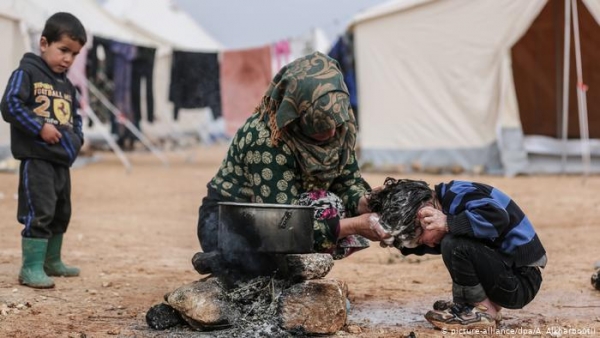At the latest Brussels IV Syria Conference, the United Nations Women Executive Director, Phumzile Mlambo-Ngcuka, discussed the danger that millions of Syrian women are facing. Amongst all of the consequences of the Syrian conflict, women are mostly affected by a lack of healthcare and employment. Now, as COVID-19 ravages the nation, women are struggling to be treated or, just as worse, are forced to quarantine with abusive partners. Currently, about 12 millions Syrians are in need of humanitarian assistance and nearly 5.7 of them have fled due to the crisis.
The United Nations Population Fund (UNFPA) reports that Syrian women have a higher poverty rate than Syrian men. They are also forced to stay home, making them more susceptible to domestic violence. The UNFPA thus predicts millions of future gender-based violence acts. New estimates have concluded that Syrian women are also becoming pregnant at a quicker rate, yet with the increase in coronavirus cases, their access to medical treatments has declined. They are fearful of contracting the virus or of leaving their homes resulting in being reprimanded by their partners. This, of course, poses an extreme health hazard to these women.
From an economic view, 700,000 jobs for arab women are expected to be lost. Lack of opportunities forces women to work in the informal sector. The women tend to flee to Iraq or Lebanon, but they find it extremely difficult to acquire safe jobs. According to a recent UN Women survey, only one percent of women possessed a work permit in Lebanon. In Iraq, 78 percent of refugee women were legally entitled to employment, yet only four percent of them acquired jobs.
The UNFPA is responding to these issues by increasing employment opportunities, distribution of sanitary supplies, and accessibility to reproductive health services. At the Brussels IV Conference, Mlambo-Ngucka stressed the necessity to proclaim women’s rights. She also urged the international community to ensure resources to Syrian women across the middle east during the pandemic.
To read more, please visit:
https://www.thenewhumanitarian.org/news/2020/05/12/Syria-refugee-women-coronavirus-battleground
Author: Sergio Gomez




